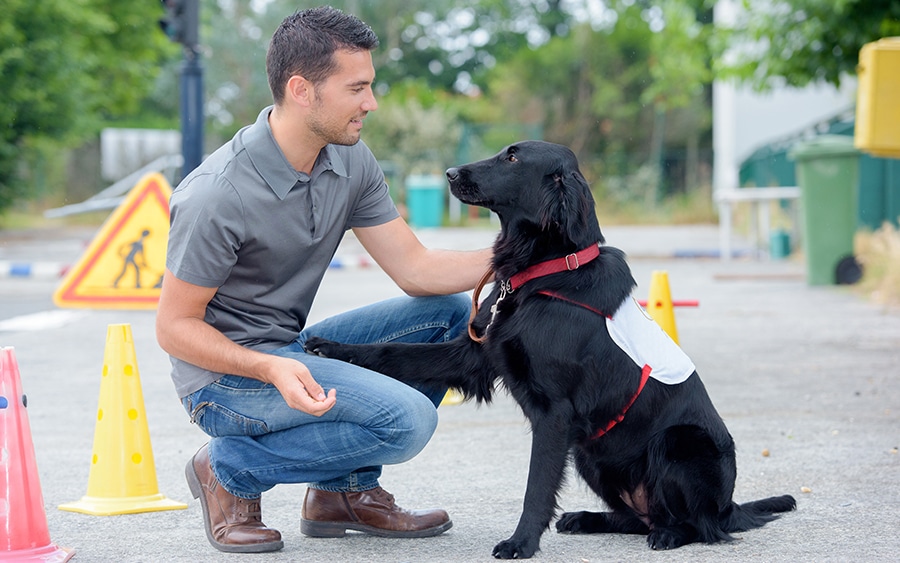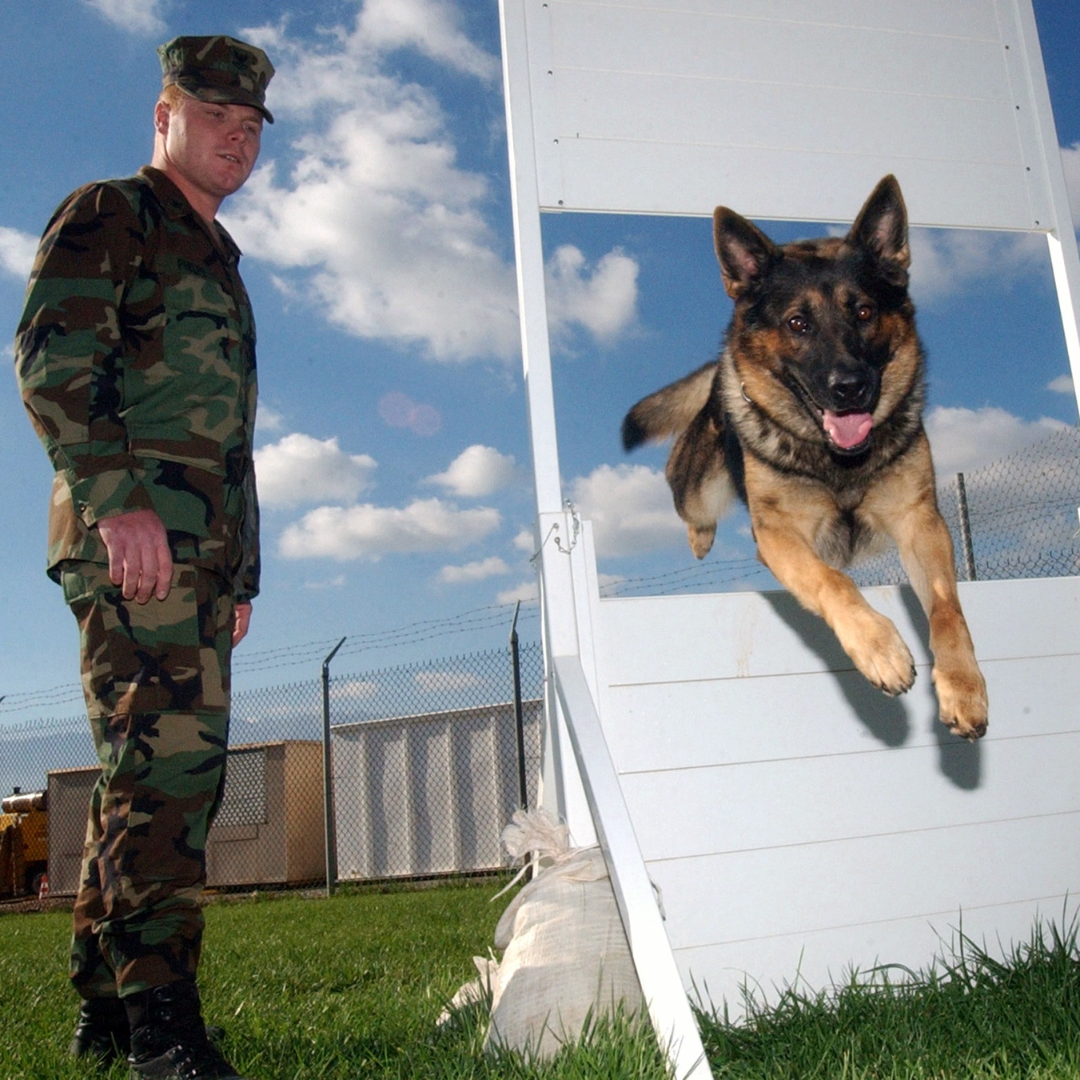Discover Top Tips for Dog Training Charlotte NC That Actually Job
Unlock Your Canine's Possible: Proven Canine Training Approaches for Success
Reliable pet training is a nuanced process that rests on recognizing canine actions and utilizing clinically backed approaches. dog training charlotte. By incorporating favorable support, developing clear commands, and prioritizing socializing, pet proprietors can cultivate an efficient relationship with their pet dogs. Nevertheless, challenges often occur that need customized solutions and a person technique. Discovering these confirmed methods reveals not just the possibility for behavioral renovation however likewise the deeper bond that can be formed between proprietor and pet dog. What vital strategies must be taken into consideration to absolutely unlock your canine's potential?
Comprehending Dog Actions
Comprehending pet dog actions is necessary for efficient training and fostering a favorable relationship in between canines and their proprietors. A detailed grasp of canine body movement, vocalizations, and social interactions is essential for identifying their requirements and feelings. Canines connect mainly via non-verbal hints; for instance, a wagging tail may show excitement, while pinned ears can signify worry or entry.

Moreover, environmental factors play a significant role in shaping a canine's behavior. Changes in routine, new environments, or the visibility of strange people can bring about stress and anxiety or anxiousness in pet dogs. Acknowledging these triggers allows owners to reduce unfavorable reactions and create ideal training approaches.
Inevitably, a deep understanding of pet dog habits lays the foundation for effective training methods, enhancing both actions and the overall bond in between the dog and its proprietor. Dog training. This knowledge is important for cultivating a well-adjusted, pleased canine companion
Favorable Support Techniques
Reliable training relies heavily on positive support techniques, which have been shown to yield considerable results in forming wanted habits in pets. This technique entails awarding a pet for exhibiting details habits, therefore boosting the probability that these behaviors will be repeated. Benefits can take numerous forms, including treats, appreciation, playthings, or playtime, depending on what encourages the individual pet dog.

It is important to progressively eliminate benefits as the dog finds out the actions, transitioning to intermittent reinforcement. This technique maintains the actions gradually while stopping reliance on constant incentives. By concentrating on positive support, instructors can grow a trusting relationship with their pets, promoting a healthy and participating training setting that improves overall obedience and efficiency.
Establishing Consistent Commands
A basic element of effective pet dog training is the establishment of constant commands. Consistency in commands is critical for efficient communication in between the pet dog and the trainer. When commands are consistent, canines learn to connect specific words with preferred actions, which speeds up the training procedure and improves understanding.
To develop consistent commands, it is crucial that all member of the family make use of the same terms and gestures. For instance, if one individual uses "sit" while an additional says "take a seat," it can develop confusion for the pet dog. Select clear, distinctive words for commands and guarantee every person involved in the canine's training sticks to these selections.
Reinforce commands through frequent practice, guaranteeing that the pet dog gets enough possibilities to react appropriately. When a pet efficiently adheres to a command, prompt favorable support must adhere to.
Last but not least, hold your horses. Establishing regular commands takes time and initiative. With devotion and quality, you will certainly assist your pet create a solid understanding of assumptions, eventually causing a well-behaved buddy.
Socialization and Direct Exposure
Mingling a pet is crucial for cultivating a well-adjusted and certain buddy. This process entails subjecting your canine to a variety of settings, individuals, and other pets to establish their social skills and flexibility. Early socializing, ideally in between the ages of three to fourteen weeks, is essential, as it prepares for a pet's future habits.
Throughout socializing, aim to provide favorable experiences in different setups, check that such as parks, hectic streets, and homes with various other animals. Present your pet dog to various stimulations, consisting of audios, sights, and scents, making sure that each encounter is fulfilling. This exposure aids reduce fear and stress and anxiety, paving the means for a more resistant canine.
Involving in controlled group play sessions with other canines can additionally boost social skills, instructing your family pet ideal interactions and boundaries. Prioritizing socialization will substantially add to your pet's total happiness and behavior throughout their life.
Conquering Common Educating Challenges

One more frequent problem is distraction. Pets may battle to focus in strange or hectic settings. Slowly desensitize your pet dog to distractions by beginning training in a peaceful environment and gradually presenting more stimulations as they end up being competent (dog training near me). Positive reinforcement strategies, such as deals with and praise, can preserve inspiration and focus.
In addition, behavioral problems like leaping or too much barking can come to be aggravating. Address these by showing different actions, such as sitting smoothly when greeting visitors. Uniformity and perseverance are essential; strengthen preferred actions continually and avoid scolding, which can lead to confusion.
Lastly, acknowledge that each pet dog is one-of-a-kind, and training timelines might differ. Dressmaker your approach to your dog's individual needs, and seek professional guidance if required. With determination and the best methods, getting rid of these obstacles can bring about a trained, satisfied canine friend.
Final Thought
To conclude, opening a pet dog's prospective necessitates an extensive method that incorporates an understanding of canine actions, the application of favorable support methods, and the facility of constant commands. Early socialization and direct exposure to varied settings additionally improve a canine's adaptability and confidence. By resolving typical training difficulties with tailored methods and persistence, a cooperative and harmonious relationship in between click to read more pet dog and handler can be cultivated, eventually resulting in a mannerly buddy capable of prospering in different situations.
Reliable canine training is a nuanced procedure that pivots on understanding canine actions and utilizing medically backed methods.Understanding pet habits is vital for visit their website reliable training and promoting a positive partnership between pets and their owners.Reliable training relies greatly on positive support techniques, which have been revealed to yield considerable outcomes in shaping wanted behaviors in pet dogs. When commands are uniform, canines find out to associate certain words with desired habits, which increases the training process and improves understanding.
In verdict, unlocking a pet's potential requires a comprehensive technique that includes an understanding of canine behavior, the application of positive support strategies, and the establishment of constant commands.